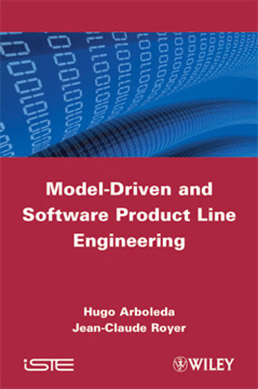
Many approaches to creating Software Product Lines have emerged that are based on Model-Driven Engineering. This book introduces both Software Product Lines and Model-Driven Engineering, which have separate success stories in industry, and focuses on the practical combination of them. It describes the challenges and benefits of merging these two software development trends and provides the reader with a novel approach and practical mechanisms to improve software development productivity. The book is aimed at engineers and students who wish to understand and apply software product lines and model-driven engineering in their activities today. The concepts and methods are illustrated with two product line examples: the classic smart-home systems and a collection manager information system.
1. Introduction.
2. Software Product Line Engineering Basics.
3. Model-Driven Engineering.
4. Model-Driven and Software Product Line Engineering.
5. The FieSta Framework: Fine-Grained Derivation and Configuration.
6. Tools Support.
7. A Second Comprehensive Application Example.
8. Further Reading.
9. Conclusion.
Hugo Arboleda is Associate Professor at ICESI University in Cali, Colombia. He leads a research team and is the author of several papers concerning software product lines and model-driven engineering. He is currently director of a Masters in informatics and telecommunications management. He has published papers with SPLC, CLEI, ISEC, BENEVOL, among others. In 2012 he was a member of the scientific committee for the 16th International Software Product Line Conference (SPLC). He has been a member of the program committees of FMESPLE and is an IT consultant for several Colombian companies.
Jean-Claude Royer is currently Professor at Ecole des Mines de Nantes in France and a member of the Mines de Nantes-INRIA ASCOLA team. He has published papers with OOPLSA, FASE, AMAST, JMLC, TOOLSEE, JUCS, APSEC, Informatica, JOOP, FM, ISEC, DOA, SPLC, FACS, amongst others. He was the leader of the traceability work-package in the AMPLE project (http://www.ampleproject.net/) from October 2006 to September 2009.